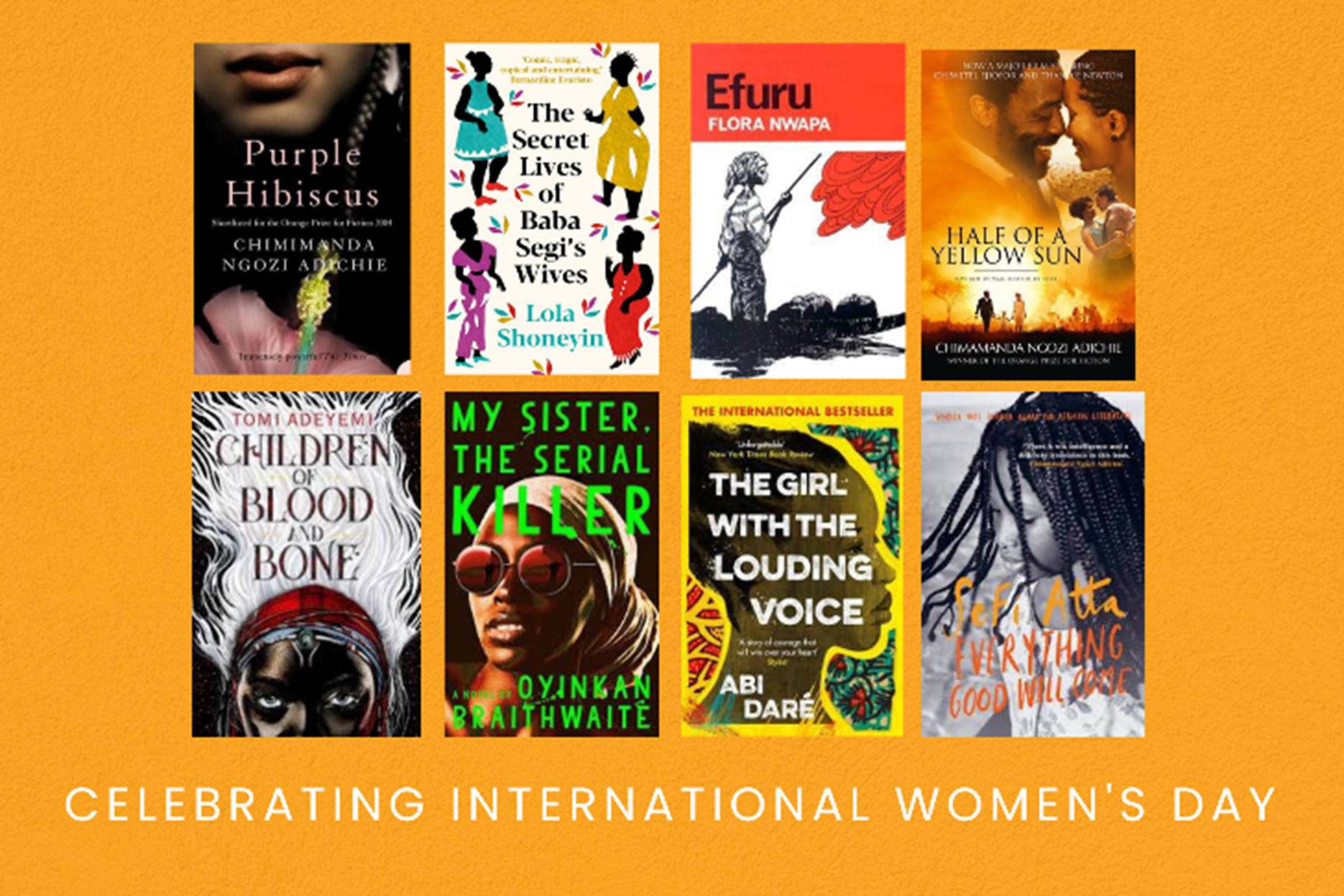Happy International Women’s Day!
By Michelle Mojisola Savage
As we celebrate International Women’s Day, it is important to recognize and celebrate the contributions and experiences of women worldwide. Nigerian literature, notably, features many powerful, inspiring, and thought-provoking stories with female protagonists. Here are eight Nigerian novels with female leads that showcase the complexity and diversity of Nigerian women’s experiences. From challenging cultural norms and abuse to navigating love and war, these books offer a glimpse into the lives of Nigerian women at home and in diaspora.
Purple Hibiscus (Chimamanda Ngozi Adichie 2003)
The book follows the life of Kambili, a 15-year-old girl from a wealthy and devout Catholic family who faces abuse from her respected businessman father. Kambili and her brother find solace at their unconventional aunt’s home, where she is exposed to a more liberal way of life that challenges her understanding of the world and helps her find her voice.
The Secret Lives of Baba Segi's Wives (Lola Shoneyin 2010)
Themes of family, marriage, gender roles, and power dynamics in modern-day Nigeria are explored here through the unique personalities of Baba Segi’s four wives. When Baba Segi takes on a fourth wife, Bolanle, a well-educated and independent woman, the household is turned upside down as secrets are revealed, and tensions rise, forcing each wife to confront their struggles and secrets.
Half of a Yellow Sun (Chimamanda Ngozi Adichie 2006)
Set during the 1960s Biafran/Nigerian war, Half of a Yellow Sun follows twin sisters Olanna and Kainene and their partners as they navigate personal relationships and difficult choices during the war. The novel portrays the human cost of conflict and how individuals navigate their relationships and sense of morality in times of crisis.
Efuru (Flora Nwapa 1966)
Efuru is a significant early work of African women’s writing, offering a nuanced portrayal of the lives of African women. The novel tells the story of Efuru, a beautiful and independent woman who challenges traditional gender roles and societal expectations in a rural village in colonial-era Nigeria.
My Sister, the Serial Killer (Oyinkan Braithwaite 2018)
Oyinkan Braithwaite’s book is a thriller that follows the story of Korede, a nurse who covers up her sister Ayoola's disturbing habit of killing her boyfriends. As Ayoola becomes involved with a man Korede secretly loves, Korede begins to question her loyalty to her sister and her complicity in covering up the crimes.
Children of Blood and Bone (Tomi Adeyemi 2018)
The first book in a young adult fantasy trilogy, Children of Blood and Bone, follows the story of Zélie Adebola, a young girl determined to bring magic back to her oppressed and magic-less Maji people in the kingdom of Orïsha.
The Girl with the Louding Voice (Abi Dare 2020)
The book follows the story of 14-year-old Adunni, who dreams of becoming a teacher despite being forced into servitude by her father. It explores themes of poverty, gender inequality, and education.
Everything Good Will Come (Sefi Atta 2005) Everything Good Will Come explores the lives of two women, Enitan and Sheri, as they navigate the social and political landscape of Nigeria from the 1970s to the 1990s. It is praised for its realistic portrayal of female friendship and identity.
Also read: How Pioneer Female Writers Shaped Nigerian Literature.
All eight books are available to borrow from ZODML, 196, Awolowo Road, Ikoyi.
Michelle Mojisola Savage
is a writer and Engineering
student at the University of
Lagos. Her interests include
playing the guitar, strong
political arguments and
talking to dogs.





